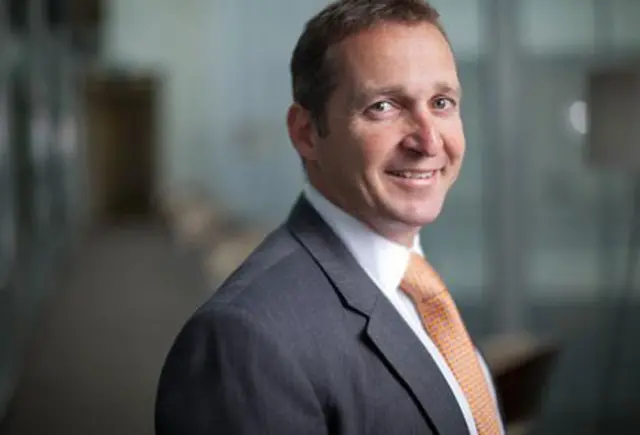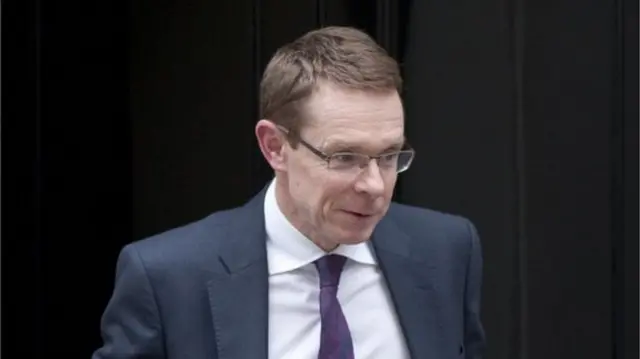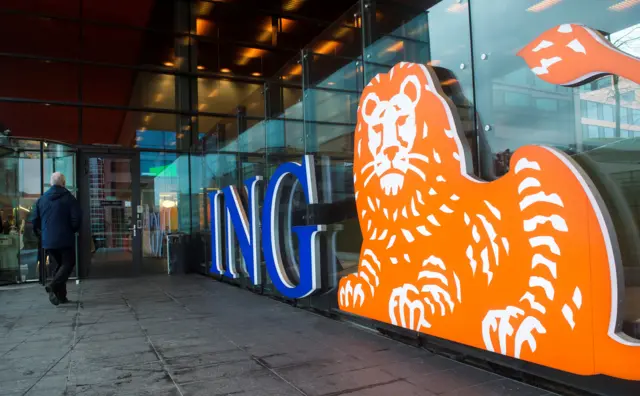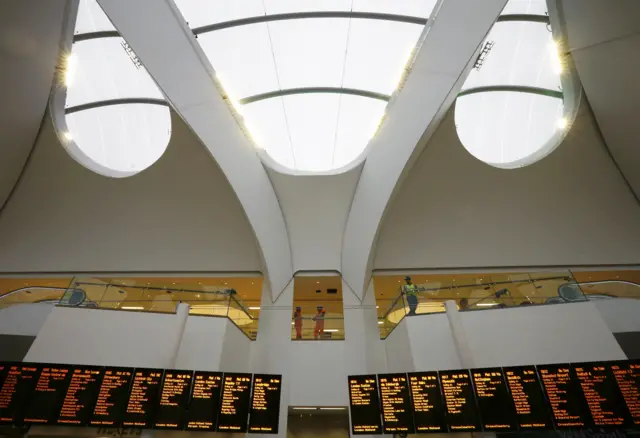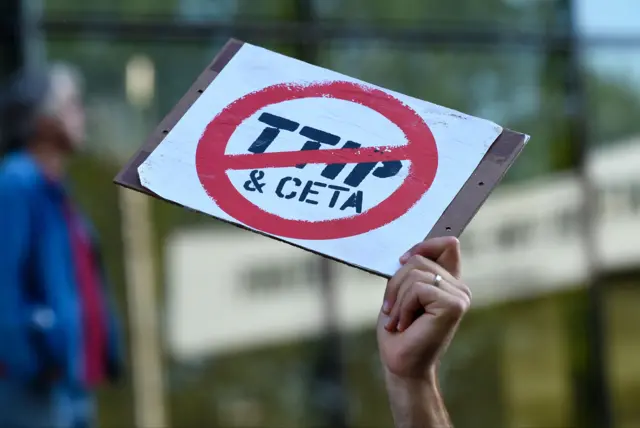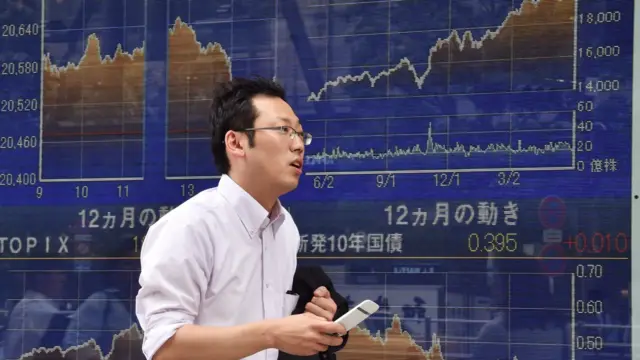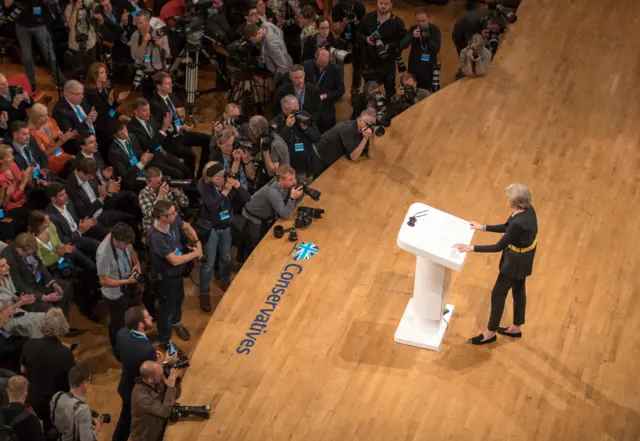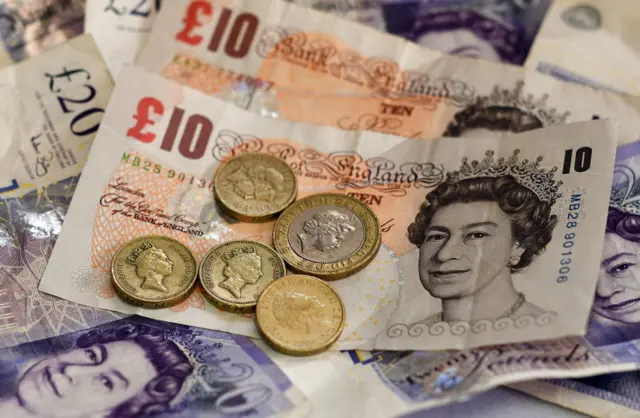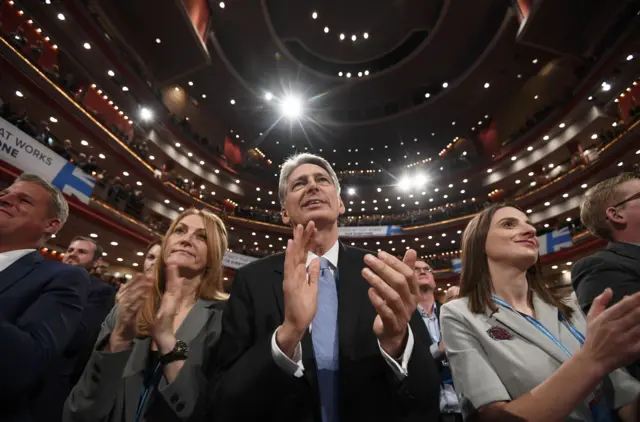Germany’s deputy chancellor lambasts Deutsche Bankpublished at 08:13
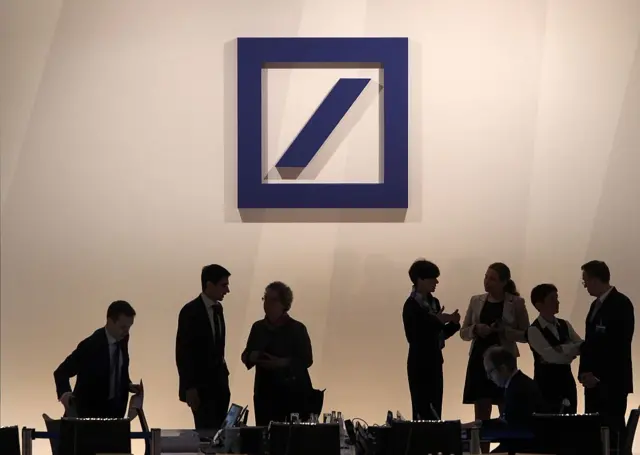 Image source, Getty Images
Image source, Getty ImagesAiling German bank Deutsche Bank has denied rumours it could seek a bailout from the German government - but were it to change its mind it may need to placate Germany’s deputy chancellor.
Sigmar Gabriel, leader of the centre-left social democrats and Germany’s economics minister, lambasted the bank over the weekend, after Deutsche chief John Cryan blamed its troubles on “forces in the market”.
“I didn't know whether I should laugh or be furious that a bank which turned speculation into a business model now declares itself the victim of speculators,” Mr Gabriel is quoted as saying by the FT. “I'm really worried about the people employed at Deutsche Bank.”
Deutsche's shares hit 30-year lows last week, after the US Department of Justice requested the bank pay $14bn to settle claims of mis-selling mortgage backed bonds before the financial crisis of 2008.

